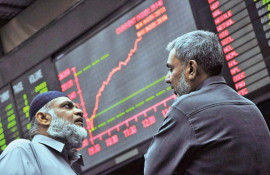
The comprehensive report is divided into two volumes. The first part analyses the growth performance of the region, covering the outlook and challenges countries face in sharing benefits of growth with their people – called inclusive growth.

The second part examines the integration of three dimensions of sustainable development – economic growth, social progress and environmental protection – as a concept that offers perspectives on institutional frameworks for the practical implementation of this framework.
Analysing the economic performance of Asia-Pacific countries, the report indicates that the region stands out for its economic growth achievements and continues to lead global economic recovery.
Growth in the region is expected to stand at 5.9% for 2015, increasing slightly from 5.8% in 2014. Inflation has been forecast to decline further and remain low.
However, growth potential of Asia-Pacific countries is being held back by structural weaknesses such as infrastructure shortage and excessive commodity dependence of some economies.
Pakistan, which has a share of 1.2% in GDP of developing Asia-Pacific, has been particularly engulfed by structural weaknesses in terms of infrastructure shortages. This has been one of the crucial challenges to the country’s growth prospects besides high fiscal deficits and poor domestic security conditions.
However, Pakistan’s growth performance has been projected to rise to 5.1% in 2015 from 4.1% in 2014 mainly due to expected pickup in industrial activity.
The country has also made gains in terms of declining inflation, relative growth in domestic credit and strong remittance flows.
How inclusive is Asia-Pacific growth?
Escap has for the first time in this report made an attempt to measure the inclusiveness of growth in the region. Despite having made achievements in reducing poverty levels, 743 million people in the region are still poor.

Inclusiveness is broadly defined in terms of increasing the average standard of living of the population, reducing income inequality, reducing extreme poverty and expanding equality in opportunities.
The inclusiveness index covers 15 indicators to assess the economic, social and environmental impact of growth. Taking a sample of 16 countries accounting for 92% of Asia-Pacific population and 88% of its GDP, the report ranks countries based on the inclusiveness of growth.
It finds that although countries have progressed at the national level, there have been widespread divergences within them along the lines of gender, rural-urban and geographical boundaries.
Amongst the 16 countries, the most inclusive growth is witnessed in Kazakhstan followed by the Russian Federation and Thailand. Pakistan is ranked at the bottom whereas India, Nepal and Bangladesh have also been found to be least inclusive.
Escap Macroeconomic Policy and Analysis Chief Dr Hamza Ali Malik reiterating the importance of inclusive growth said, “Economic growth is necessary but not sufficient for economic development. Pursuit of inclusive growth is critical. Policy-makers need to internalise the aspects of inclusive growth and sustainable development into their domestic policy frameworks”.
Inclusive growth is crucial as it has direct repercussions for three global priorities set by the UN for 2015: completing the Millennium Development Goals; reaching a meaningful, universal agreement on climate change and adopting an ambitious new sustainable development agenda, including a set of sustainable development goals (SDGs).
In the case of Pakistan, for the growth to remain sustainable, progress has to be made on the Millennium Development Goals, which by far has been quite poor. As the second part of the report has lain out, the onus of achieving sustainable growth lies with the government.
Governments need to show a high level of political commitment and an integrated vision of development. This involves reconciliation of public and private interests, coordination of policies in different domains and continuous monitoring of progress and policy impacts.
The writer is an economist and ex-central banker
Published in The Express Tribune, June 1st, 2015.
Like Business on Facebook, follow @TribuneBiz on Twitter to stay informed and join in the conversation.

1725877703-0/Tribune-Pic-(5)1725877703-0-165x106.webp)















COMMENTS
Comments are moderated and generally will be posted if they are on-topic and not abusive.
For more information, please see our Comments FAQ